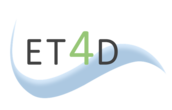WP3: Diagnosis of business and consumer behaviour influencing factors
WP Leader: UZ
Objectives
- Identify factors influencing consumer behaviour in the dairy market
- Characterise key determinants of business/purchasing decisions
- Characterise information needs of seleted target groups for making informed choices
Description of content:
Technologies to increase transparency and mitigate environmental impacts are of little use if farmer do not implement them and/or different interest groups and stakeholders do not access them. WP3 will define the information on the system's state to be communicated to consumer or other interest groups (e.g., selection of parameters, update frequency). We will carry out a social diagnosis to define the conditions for making purchasing decisions in the dairy market. Social conditions, which have rarely been perceived, play a unique role here. The study will identify information needs of selected target groups for the dairy sector. Their expectations regarding production quality and the supply network will be analysed. Key element of the analysis will be the collection for data on the target groups' broadly understood information needs to be expressed and categorized with reference to relevant environmental, economic and social sustainable development goals. An additional task is to characterise the needs of farmers and the related expectations regarding the filtering/aggregation of data on the farm. This includes a review of concerns of farmers related to transparency and data sharing. WP2 and WP4 will use the information to adjust the provision of on-farm data to the expectations of individual participants in this process (i.e., target groups investigated) and WP1 will use it to understand better the needs and challenges of connectivity for agri-food. Moreover, it will help to identify strategies and incentives to remove barriers to the adoption of transparency measures. Our study will apply the principle of combining information collection procedures. The essence of this approach is conscious and controlled differentiation of key test parameters concerning research methods and techniques; information sources; concepts and explanatory theses. Due to the adopted objectives, we will use quantitative and qualitative triangulation methods (i.e., in-depth interviews and structured questionnaires). Such research methods and techniques lead to the identification of test modules.
Role of the partners:
UZ and AKI will develop the study tools for the social diagnosis and select the samples (making use of the consortium partners’ networks where possible). UZ, AKI and Innvite conduct in-depth interviews and questionnaire surveys in selected countries. ATB, TOGU, AU, MIGAL, and EMU will conduct additional questionnaire surveys in their local language, supported by UZ and AKI. Partners' contribution consists of translating research tools into national languages, conducting research and delivering their results to the WP leader.
Task:
- Study tools development and samples selection
-
In-depth interviews
-
Questionaire surveys
Deliverables:
-
Paper draft on methodology and sample selections
-
Qualittative research report
-
Quantitative research report
